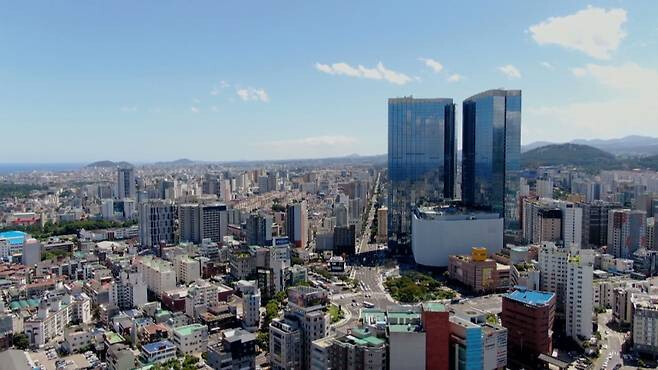
JEJU SPECIAL AUTONOMOUS PROVINCE – In a bid to revitalize the regional economy and alleviate long-standing grievances related to construction regulations faced by residents and businesses, the Jeju Special Autonomous Province has announced a draft amendment to its ‘Urban Planning Ordinance’ encompassing reforms across 13 key areas, including the relaxation of building height restrictions. The legislative notice for the proposed amendments commenced on April 18th, with the province aiming for implementation in the latter half of this year.
The cornerstone of this comprehensive revision lies in the significant increase in permissible building heights within the Second Class General Residential Zone, elevating the limit from the current 15 floors to a maximum of 25 floors. Similarly, the height restrictions for the First Class General Residential Zone will be eased from 5 to 7 floors, with an even more lenient cap of 10 floors for rental housing developments. This move is anticipated to inject dynamism into the real estate sector and potentially address housing supply issues within the province.
Further underscoring the commitment to fostering a more flexible urban environment, the amended ordinance will permit the establishment of direct sales outlets for agricultural and fisheries products, as well as smart farm crop cultivation facilities, within residential areas. This deregulation aims to support local agricultural producers and promote urban agriculture initiatives, bridging the gap between urban living and agricultural activities.
In commercial zones, the proposed changes include an increase in the maximum allowable residential ratio for mixed-use buildings from 70% to 90%. This adjustment is intended to encourage the development of vibrant, mixed-use spaces. Furthermore, ancillary facilities such as parking lots will be excluded from the calculation of residential floor area, providing developers with greater flexibility in their designs. A notable deregulation in natural green areas involves the complete abolition of the previous limit on restaurant floor area (under 500㎡), significantly expanding the potential for commercial activities within these zones while presumably adhering to environmental safeguards.
The amendments also address regulations pertaining to altitude, scenic views, and natural green areas, introducing a degree of flexibility while maintaining the unique character of Jeju's landscape.
Regarding scenic districts, the criteria for the total floor area of buildings will shift from the ‘total floor area of all buildings’ to the ‘area per building.’ This change is expected to facilitate small-scale, dispersed construction projects that are more in harmony with the natural surroundings. Additionally, the regulations concerning the frontage length of buildings will be clarified by specifying a ‘maximum length,’ providing greater certainty for developers.
In high-altitude districts, a temporary exemption from the existing urban management plan’s altitude restrictions will be granted until December 31, 2026. This temporary measure will apply specifically to small-scale housing redevelopment projects and public housing construction initiatives. This moratorium is intended to provide a window for development while the Jeju provincial government finalizes its comprehensive altitude management plan.
The scope for permissible development activities within natural green areas will also be expanded, with the allowable development permit area increasing from the previous 30,000㎡ to a maximum of 50,000㎡. Moreover, land development project plans will now be subject to approval alongside housing construction project plans under the Housing Act, streamlining the approval process for larger-scale developments. Notably, landform alteration for the construction of single-use buildings on land under 50,000㎡ will be exempt from permitting requirements, further easing the regulatory burden for certain types of development.
Recognizing the practical realities faced by residents, the amendments also refine regulations concerning road width and land division standards.
The road width criteria will be standardized across both eup/myeon (rural towns/villages) and dong (urban neighborhoods) areas, allowing for adjustments based on the specific characteristics of the building. These standards will be categorized into minimum widths of 6m, 8m, and 10m or more, depending on the size of residential and lodging facilities. In particular, the criteria for the number of housing units in eup/myeon areas will be increased, potentially reducing the burden of infrastructure contributions for smaller developments.
The criteria for minor land divisions will be relaxed, increasing the allowable number of divisions from the existing limit of three per year to five per year. Additionally, the deliberation criteria for the Urban Planning Committee will be simplified, limiting its purview to housing construction projects involving 30 or more units.
Further proposed improvements include clarifying the conditions for changes in land use when floor area ratios are relaxed and allowing the installation of small-scale groundwater wells (under 1,000㎡) without undergoing urban planning facility procedures, streamlining access to water resources for smaller users.
The Jeju Special Autonomous Province views these amendments as crucial steps towards fostering a more business-friendly environment and enhancing the quality of life for its residents. By strategically easing regulations while maintaining environmental and aesthetic considerations, the province aims to unlock new opportunities for economic growth and address pressing housing needs.
Following the 20-day legislative notice period, which runs until May 8th, the Jeju provincial government will actively solicit and consider public 의견 (opinions). The draft amendments will then undergo review by the Regulatory Reform Committee and the Jeju Provincial Council, with the goal of being submitted to the Provincial Council for deliberation in June. The successful passage of these amendments is anticipated to usher in a new phase of development and economic activity within Jeju, balancing growth with the preservation of its unique natural and cultural heritage.
[Copyright (c) Global Economic Times. All Rights Reserved.]




























